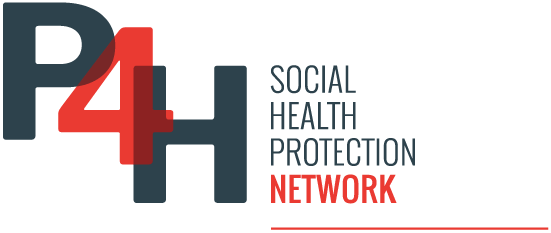The number of documents available on the P4H Network’s digital platform reflects the network’s scope of work. The majority of documents are primary source materials created by country nationals or resources produced by organizations working in social health protection (SHP) and/or health financing (HF).
Piecing the Puzzle: Addressing the Multi-Payer and Fragmented Health Financing System in the Philippines
Over the past decade, government health spending in the Philippines has grown rapidly, supported by expanded fiscal space, stronger health policies, and rising national income. Despite this progress, the health financing system remains fragmented, with overlapping...
Exploring the uptake of economic evaluation in Spanish reports positioning medicines for public reimbursement
Spain’s first pilot integrating economic evaluations into drug reimbursement decisions reveals progress, challenges, and lessons for the future. This study by Laura Vallejo-Torres, Juan Oliva-Moreno, and Félix Lobo examines how economic evaluations (EEs) were...
The Economic Burden of Prostate Cancer in Antigua and Barbuda: A Prevalence-Based Cost-of-Illness Analysis from the Healthcare Provider Perspective
In this peer reviewed article from the International Journal of Environmental Research and Public Health, the authors analyze the cost for treating prostate cancer in Antigua and Barbuda.
National Health Insurance (NHI) Primary Care Transformation Initiative (PCTI) – Bahamas
This 2021 report from the Bahama’s National Health Insurance Authority, addresses the stakeholder feedback during the consultation held in 2020. In response to the consultation, the Primary Care Transformation Initiative (PCTI) was launched in January of 2021, to...
Estimates of non-communicable disease expenditure by disease phase, sex, and age group for all OECD countries
Non-communicable diseases (NCDs) represent a growing share of global health expenditure, yet comparable data across countries remain scarce. Understanding how costs vary by disease phase, sex, and age group is critical for anticipating future health system needs and...
Unlocking value: a comprehensive costing study of primary health care service delivery in Tanzania
Tanzania’s government significantly increased primary health care (PHC) spending between 2021/22 and 2022/23, raising per capita expenditure and spending per outpatient visit. Despite this progress, current PHC spending remains well below global standards and the...
The Role of Healthcare in Reducing Inequalities and Poverty in the EU
This report, The Role of Healthcare in Reducing Inequalities and Poverty in the EU, published by the European Commission, explores how public healthcare can alleviate social and economic disparities across EU Member States. Chapter 2 examines household-level...
Value of pharmacy services for common illness symptoms covered by universal coverage at drugstore compared to outpatient services at a hospital in Thailand
Since October 2022, the National Health Security Office has incorporated pharmacy services for 16 common conditions, including headache, dizziness, pain in joint, muscle pain, fever, cough, sore throat, stomachache, diarrhoea, constipation, dysuria, vaginal discharge,...
Regional action framework for health financing to achieve universal health coverage and sustainable development in the Western Pacific
Universal health coverage (UHC) aims to ensure equitable access to quality health services without financial hardship, requiring adequate and sustainable public financing. In the WHO Western Pacific Region, economic growth has improved public health spending, yet many...
Catastrophic health expenditure among households with differently abled children and adolescents in Puducherry, India: a mixed-method study
Households caring for differently abled children often face unique financial and social challenges, with healthcare costs being one of the most significant burdens. The study Catastrophic health expenditure among households with differently abled children and...
The cost of inaction to strengthen the resilience of primary health care in Latin America and the Caribbean: a modelling study
The COVID-19 pandemic exposed deep vulnerabilities in primary health care (PHC) systems across Latin America and the Caribbean (LAC). Fragile infrastructures, limited resources, and workforce shortages left millions at risk as essential services—such as immunizations,...
Disease-specific distress healthcare financing and catastrophic out-of-pocket expenditure for hospitalization care in Bangladesh
This study examined out-of-pocket (OOP) expenditures for hospitalization in Bangladesh using data from the 2022 Household Income and Expenditure Survey covering 14,395 households. The average annual OOP cost per hospitalization was USD 418, nearly twice as high in...
Smart health spending: How to make every peso count
In this document published by the Inter-American Development Bank in 2023, the question of how to guarantee health for the populations of Latin America at a time of global crisis is addressed. The authors propose an approach where not only should health spending be...
Strengthening health system financing in the context of COVID-19
The COVID-19 pandemic has caused a double shock – health and economic. Strengthening health financing systems has been a stressful task, not only for developing countries but also for developed countries. This study compares the impact of the COVID-19 pandemic on the...
Japan’s emerging role in bridging immunisation gap and supporting global health
The sudden suspension of United States funding to the US Agency for International Development (USAID) and Gavi in 2025 has raised serious concerns for global immunisation programmes. Historically, US support has been instrumental in reducing child mortality and...
